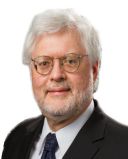Sleep
Trauma and Sleep: Disorders
There is growing understanding of the relationship between trauma and sleep.
Posted June 29, 2016
In the last post I discussed the impact of traumatic stress on sleep. In this post I will discuss in greater detail the ways in which traumatic stress affects sleep and how sleep disorders interact with the effects of traumatic stress.
Traumatic stress can negatively impact sleep in many ways. People who have had traumatic experiences often display hypervigilance, a state of heightened awareness in order to guard against further harm. This high level of arousal makes it extremely difficult to relax and fall asleep.
Traumatic events occur during the night as well as during the day, and this can cause fear conditioning to the presence of darkness. Some patients fear falling asleep and have a vague sense of foreboding as they prepare for bed. With further reflection it sometimes emerges that this fear is a conditioned response to being especially vulnerable during the night, when they experienced physical or sexual abuse as a child. One of my supervisors in graduate school had been in Vietnam during the Tet Offensive of 1968 and had experienced extreme violence during the night. Even 10 years later he found it virtually impossible to sleep at night due to the constant fear associated with the onset of darkness. He could only sleep as the morning came or if a friend were available to stay awake and “stand guard”.
Frightening nightmares, one of the diagnostic criteria for PTSD, pose a challenge to sleep. Traumatic events that occur during war, an assault, or even a work related accident can be re-experienced either symbolically or through reenactment in nightmares. The resulting high levels of arousal disrupt sleep causing sudden awakenings. The fear of having further nightmares can itself make relaxing and falling asleep much more difficult.
There are other aspects of psychological trauma that serve to disrupt sleep. In a desperate effort to manage the hypervigilance, overarousal, and anxiety of PTSD, many people will utilize alcohol or other substances to help themselves fall asleep. We know this is not a long term answer and in time these substances usually contribute to decreased and fragmented, poor quality sleep. People with a trauma history often have a propensity to negative cognitive processes, expecting negative outcomes and having a foreshortened sense of the future. These negative thought processes produce depressed mood and worry that, in turn, make it more difficult to fall and stay asleep. Victims of trauma are also likely to have medical problems such as chronic pain or digestive disorders that interfere with sleep. These may have resulted from injuries sustained during the traumatic event or developed as a result of stress related physiological or substance induced changes.
In a review reported by Maher et al. (2006), 70 - 91% of patients diagnosed with PTSD reported difficulty falling or staying asleep. Nightmares were reported by 19 - 71% of patients, depending on the severity of their trauma. Interestingly, this study also found that sleep problems such as obstructive sleep apnea and sleep movement disorders are more common among trauma patients than in the general population. Why this may be the case is unclear but may be related to the physiological effects of prolonged hyper arousal. Movement disorders may be exacerbated by the chronic tension and frequent nightmares described above. When a person is under significant stress it is very difficult to fall into a deep sleep and this may lead to poor quality sleep in which the slightest sound can awaken the person.
In a recent study reported in the journal Chest, more than half of patients at an academic military medical center diagnosed with posttraumatic stress disorder were found to also have a diagnosis of obstructive sleep apnea. Patients with both diagnoses had greater daytime drowsiness and lower reported quality of life than patients who only had a diagnosis of obstructive sleep apnea, only a diagnosis of PTSD, or control patients without either diagnosis. In addition, patients with PTSD were less likely to comply with and benefit from positive airway pressure (CPAP) therapy than patients with a sleep apnea diagnosis only. Patients treated for sleep apnea in the absence of a PTSD diagnosis showed greater response to therapy than those with the comorbid diagnoses. These findings strongly indicate that having PTSD significantly complicates treatment of other sleep disorders, including those that are physically based, such as sleep apnea.
It has been speculated that having pre-existing sleep apnea increases the risk for the development of anxiety disorders such as PTSD because sleep apnea places stress on the cardio-vascular and nervous systems due to the frequent arousals caused by the need to alert the body and return tone to collapsed airway muscles as falling oxygen and rising carbon dioxide levels are detected. This creates a high level of autonomic activation that is worsened by exposure to a psychologically traumatic experience. Having a traumatic experience can heighten fear of being trapped and thus a sense of claustrophobia that along with the light sleep present in PTSD makes wearing a mask through the night especially challenging.
What we see is an interaction between the long lasting effects of psychological trauma and poor sleep. The trauma leads to the conditions for poor sleep and poor sleep in turn worsens the effects of the trauma. This poses a great challenge for treatment and in the next blog I will discuss treatment options.
Lettieri, C. J., Williams, S. G., & Collen, J. F. (2016). OSA syndrome and posttraumatic stress disorder: clinical outcomes and impact of positive airway pressure therapy. Chest, 149 (2), p. 483 - 490.
Maher M.J, Rego, S.A., Asnis, G.M. (2006). Sleep disturbances in patients with post-traumatic stress disorder: Epidemiology, impact and approaches to management. CNS Drugs. 20(7):567-90.




